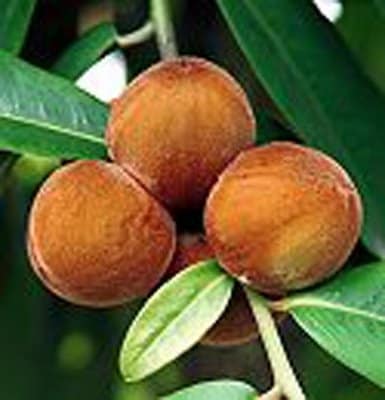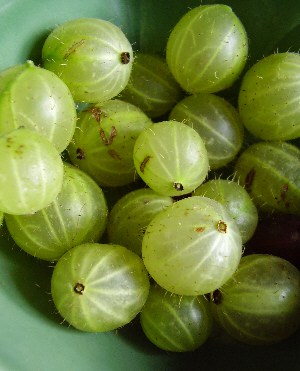The fruit we call nectarines is virtually identical to the fruit we call peach, except for one noticeable feature. The skin of most peaches contains fuzz, while the skin of nectarines is smooth. The same mutation responsible for the smooth skinis also responsible for the spicier taste and slightly smaller size of nectarines. Nectarines and peaches both grow from the same parent peach trees, which have been known to produce examples of both fruits at the same time. Essentially there are no nectarine trees, only peach trees with a genetic mutation.
Nectarines can be traced back to ancient China, where peaches and nectarines were very symbolic and revered fruits. Nectarines required even more diligence to grow, since they were more vulnerable to mold and peach rot. As trade expanded between China and the West, nectarines became even more popular. European manuscripts dating to 1616 offer the first references to nectarines in the Western world. One setback to successful European cultivation of nectarines and peaches was the extremes of hot and cold weather necessary for fruit pollination.
Because nectarines are the result of genetic mutation, growers must rely on transplanted strains of peach trees known to produce them. Certain peach trees are identified as having at least one recessive nectarine gene, so they are often mated with other strains likely to contain recessive genes. Only a successful pairing of two recessive genes will guarantee a yield of nectarines.
Nectarines are similar to peaches when it comes to their pits. Some nectarines contain freestone pits, while others are considered clinging. Freestone nectarine pits, which are not as convoluted as peach pits, can be removed from the fruit easily. Cling-style pits, on the other hand, are deeply embedded in the flesh and must be removed mechanically. Some consider nectarines to be more flavorful than peaches, and much easier to eat. Nectarines do have a spicier quality than peaches, and the flesh is generally firmer.
Benefits of Nectarine
- Nectarines are low in calories and are naturally fat free
- Nectarines are also naturally cholesterol free amin C helps to maintain a healthy immune system.
- Nectarines are also a great source of antioxidants which can help protect the skin from damaging UV rays by counteracting free radical activity.
- They are a good source of Vitamin A, beta carotene and potassium.

